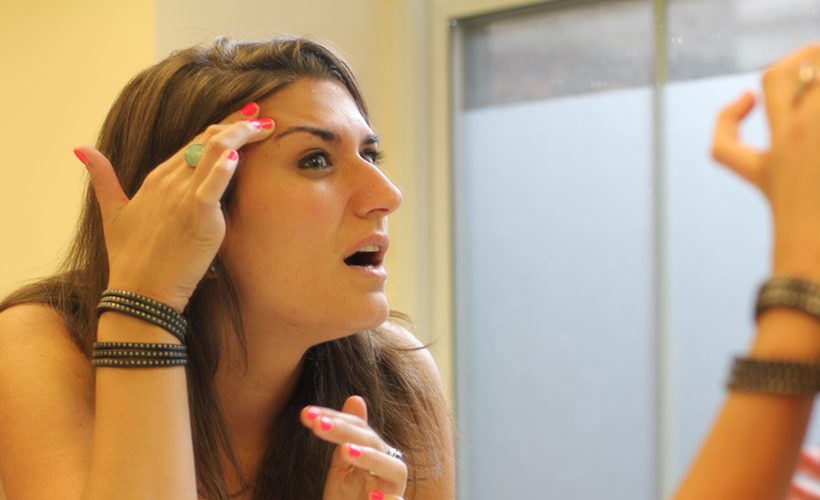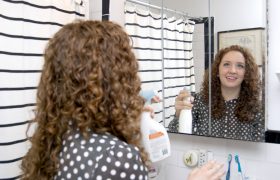In the last two years, 27-year-old Lauren DiPascale has reached her desired BMI, eliminated her vocal fry, stopped saying “sorry” so much, earned an advanced degree, underwent vaginal rejuvenation surgery, started volunteering at an animal shelter, and has now reached a point in her life where she could not find a single thing left to change about herself.
“I wish I could go back to being a normal, modern-day woman who has everything going for her, but still doesn’t feel like enough,” DiPascale told reporters.
DiPascale admits that she’s been making up things to hate about herself.
“The other day I invented the phrase ‘saddle handbags’, she says. “It means the fat on the sides of your hands. I was sort of able to convince myself it was an actual problem. I even Googled how to get rid of it. Then I remembered I made it up.”
DiPascale’s biggest fear is not being able to relate to her friends.
“What am I going to talk about with my girls if I can’t put myself down? Global Warming?” she frets.
DiPascale’s friends report that this had become a concern.
“At our last brunch, Lauren was doing Kegels the entire time,” says one friend, Ashley. “And she was eating mindfully. I mean, come on.”
DiPascale’s boyfriend, Adam, reports that, while DiPascale had been a normal, imperfect person when they’d first started dating, she’d since became an ideal mix of assertive, but polite; fun, but classy; a planner, but able to go with the flow; smart, but not a know-it-all; and confident, but not conceited.
“It’s eerie, to be honest,” he says.
DiPascale has a theory as to why she has been able to achieve perfection, something many previously thought impossible.
“I think the problem is the internet. There’s so much information that women today can be anything anybody want them to be. Change is just a Google search away!” she says.
DiPascale wants to use this experience to help other women in her situation. She’s created a charity, What We Aren’t, that partners with government organizations, public figures, and corporations to create more things that women can worry about, in case they run out.
In the meantime, DiPascale has found one last thing to change about herself.
“The thing is,” she says, visibly excited. “Women aren’t just supposed to be perfect—we’re supposed to be perfect by accident! We’re supposed to ‘cheat a little’ and ‘have fun’ and ‘let loose once in a while’. We’re not supposed to work at it. Just the fact that I worry about having nothing left to worry about means I’m still not perfect.”
She sighs in relief. “And it feels so good.”



